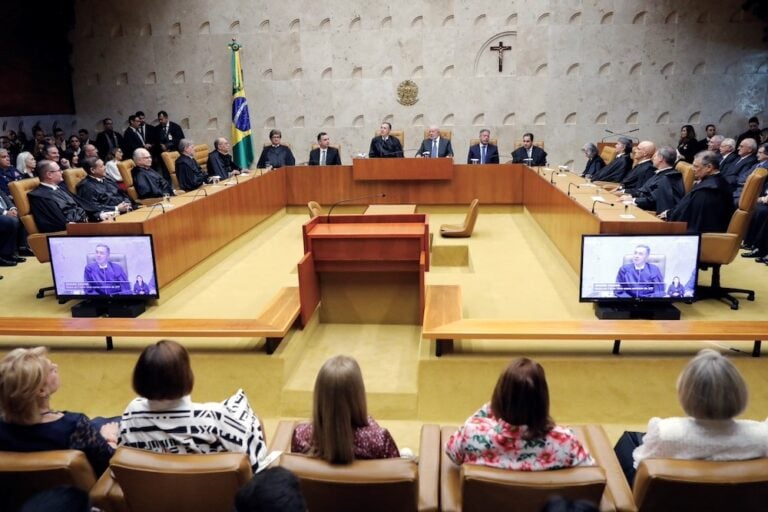According to the institutional relations minister, President Dilma Rousseff is sympathetic to calls for unending protections to be maintained on confidential information.
(IAPA/IFEX) – Miami, June 16, 2011 – The Inter American Press Association (IAPA) today warned of attempts in Brazil’s Senate that could slow down, halt or even shelve a bill for a law on access to public information. The attempts, it said, put at risk “the necessary transparency and accountability” of the government.
The IAPA’s concern is based on statements made by Institutional Relations Minister Ideli Salvatti that Brazil’s president, Dilma Rousseff, is sympathetic toward arguments by senators and former presidents Fernando Collor de Mello and José Sarney that there be unending protection of government secret and confidential information which the current proposal would disclose after a maximum of 50 years.
Bill number 41/2010 for a General Law on Access to Public Information was passed by the Chamber of Deputies in April last year after submission of the legislative initiative by then-President Luis Inácio Lula da Silva in 2009. Since the bill came up for debate in Senate Committees it has faced arguments that put its enactment in doubt.
IAPA President Gonzalo Marroquín, president of the Guatemala City newspaper Siglo 21, urged President Rousseff’s administration to “prevent Brazil from missing this opportunity to assume its responsibility to provide access to public information, a privilege that belongs to all citizens.” He added that only then will Brazil fall in line with other nations that have already enacted this type of legislation that forces “the necessary transparency and accountability that a government should observe.”
The chairman of the IAPA’s Committee on Freedom of the Press and Information, Rivard Rivard, editor of the San Antonio Express-News, Texas, agreed with the position of Brazil’s National Newspaper Association (ANJ) and expressed fear that “the amendment that would provide for unending secrecy for official documents could endanger the viability of the project and cause it to be shelved forever.”
The countries that have laws on access to public information in the Americas are Antigua and Barbuda, Belize, Canada, Chile, Colombia (writ for protection of fundamental rights), Dominican Republic, Ecuador, El Salvador, Guatemala, Honduras, Jamaica, Mexico, Nicaragua, Panama, Peru, Trinidad and Tobago, United States, and Uruguay.


